Pulitzer Center Update October 22, 2019
2019 Reporting Fellows Washington Weekend Highlights
Country:
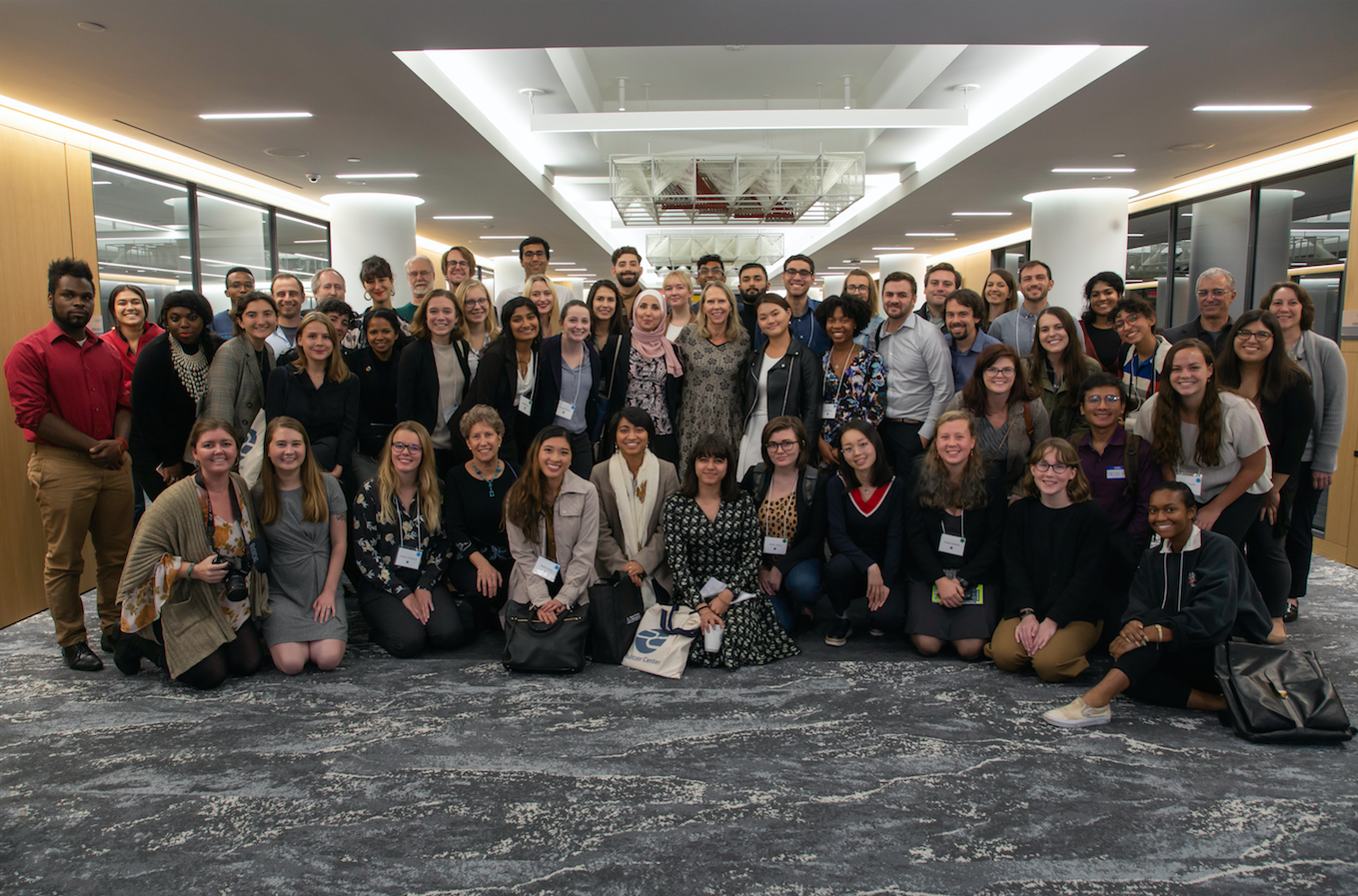
“Today, when I look at the projects that you all have produced with the Pulitzer Center’s help, I am gobsmacked,” said Linda Winslow, Pulitzer Center board member, while speaking at the Cosmos Club in Washington D.C. on Friday, October 18.
The event celebrated the hard work of 43 Reporting Fellows coming from 36 academic institutions—all involved in the Pulitzer Center’s Campus Consortium program that sends students from partner universities around the world to cover underreported global issues.
This year’s Fellows traveled to 29 countries reporting on everything from virginity testing in Morocco and the struggles of the Indigenous in Brazil to healthcare for Japan's elderly population. “You have had to dig deep,” said Kem Sawyer, contributing editor at the Pulitzer Center, who works closely with the Fellows. “You listened to stories of trauma—experiences you have never had and ones more difficult than you ever imagined.”
The Fellows who come from journalism schools, historically black colleges and universities, schools of public health, community colleges, and liberal arts colleges reported on issues related to global health, climate change, cultural identity, women’s health, human rights, religion, and migration and displacement. Sawyer touched on the impact their journalistic ventures can have on the global stage, “Storytelling can inspire readers and viewers to develop new strategies, modify behavior, reform policy, and think creatively,” she said. “For storytelling changes hearts and minds.”
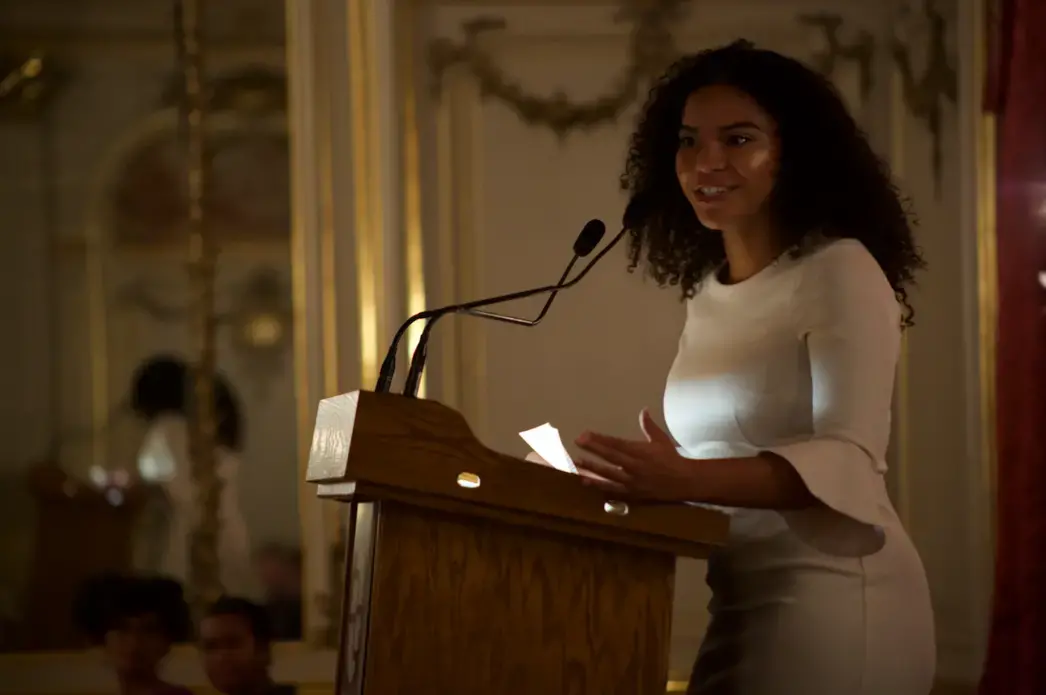

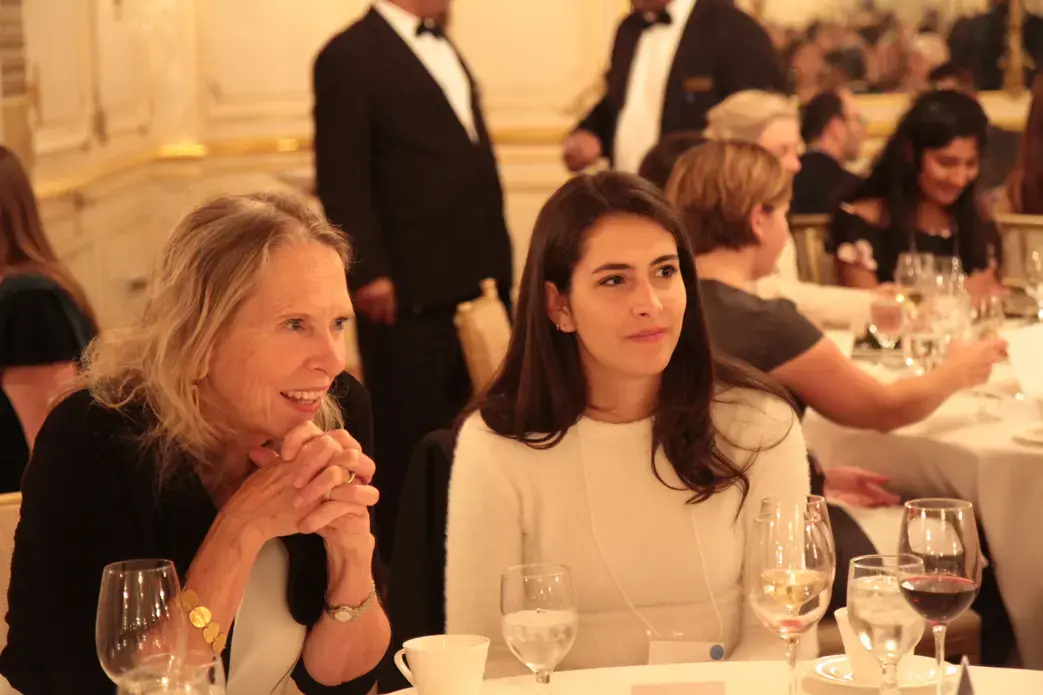
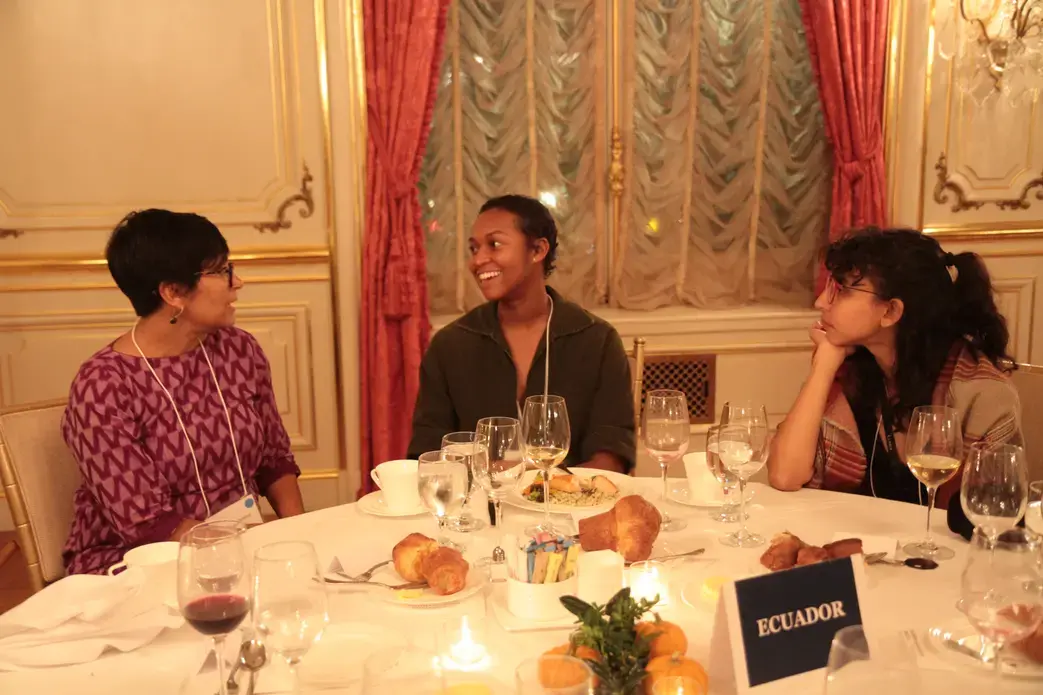
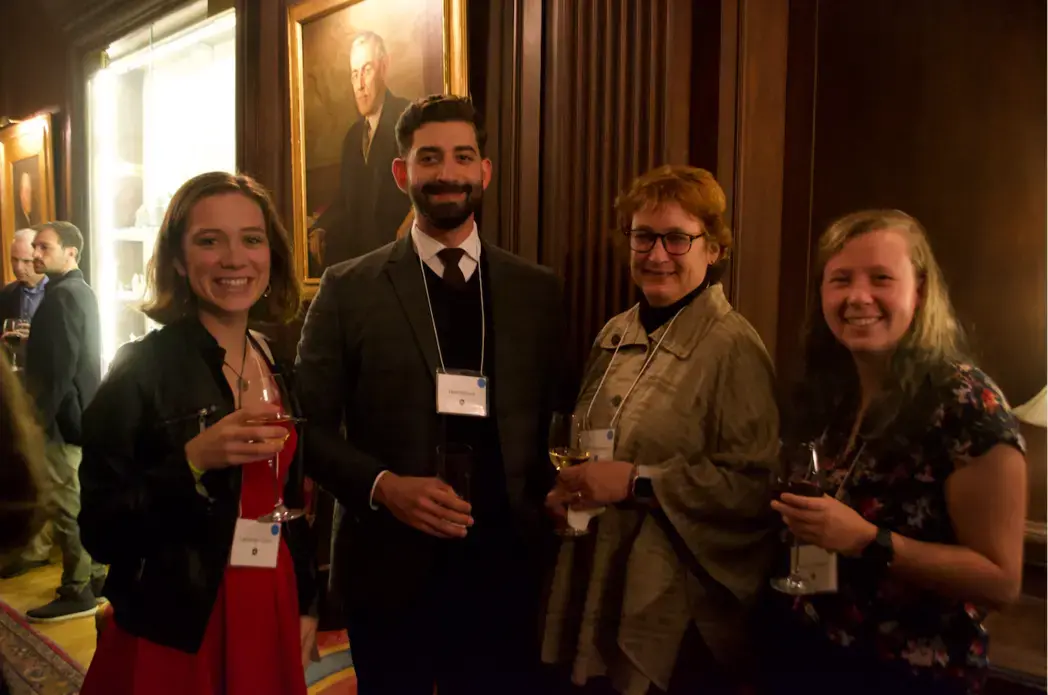

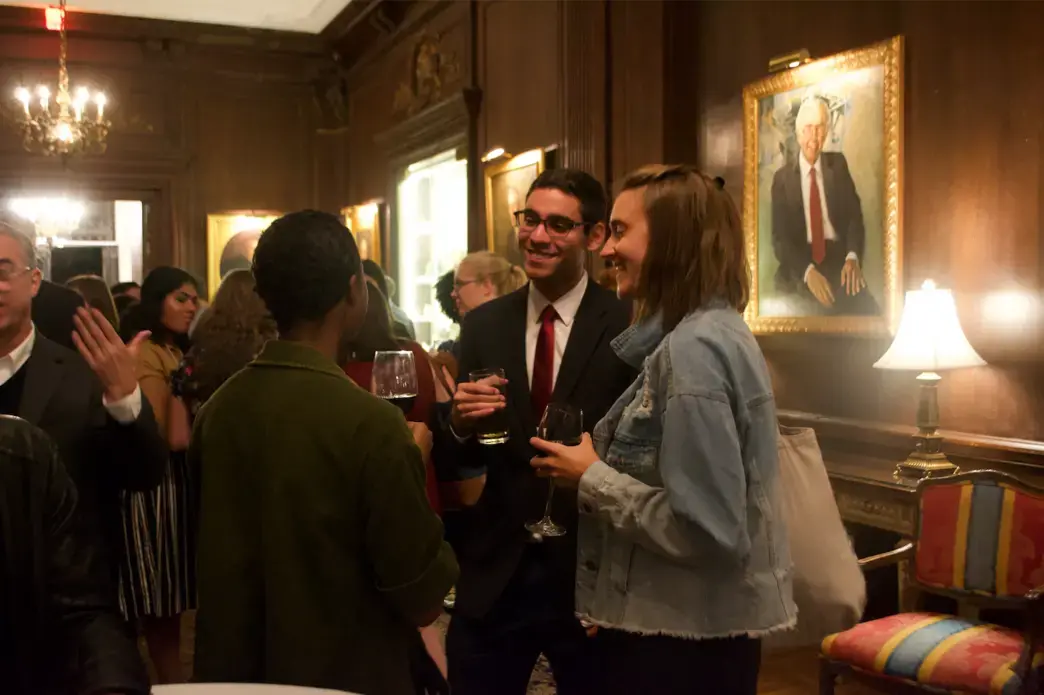








An impressive lineup of dinner speakers, including Camila DeChalus, Jacqueline Charles, and Linda Winslow, took the stage to share words of wisdom with the fellows. DeChalus, a 2016 Pulitzer Center Reporting Fellow from American University and a current grantee who now works as a reporter for CQ Roll Call covering homeland security and immigration from Washington D.C., spoke first:
“The Pulitzer Center was one of the first times when people really expressed how much they really believed in me and believed in my potential and the products that I really wanted to pursue,” said DeChalus. Referring to her reporting on transphobia and asylum seekers in Latin America, DeChalus said, “the Pulitzer Center gave me a platform and the means to really tell these stories.”
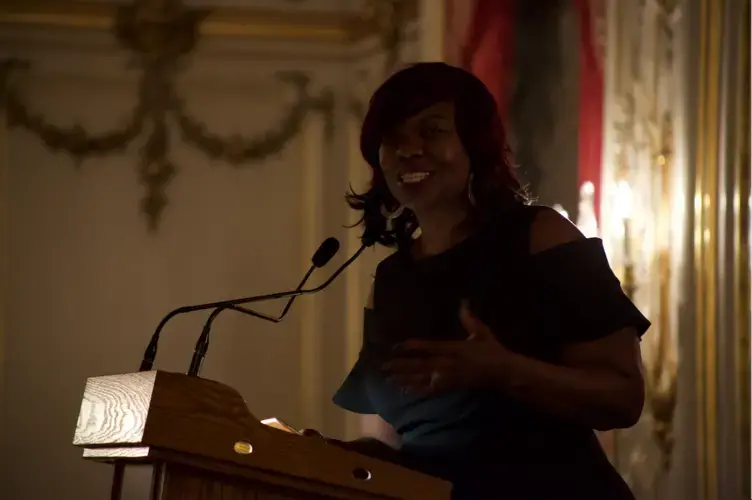
Holly Piepenburg, the Pulitzer Center’s outreach coordinator, introduced Jacqueline Charles, a Pulitzer Center grantee, Pulitzer Prize finalist, and Emmy Award-winning Caribbean Correspondent at the Miami Herald. Charles discussed her Pulitzer Center-sponsored project in Haiti where she reported on child cancer patients in the country. “Today, because of that story, because of the Pulitzer Center grant, kids today over the age of 14 now have a fighting chance with cancer,” said Charles.
Ann Peters, university and community outreach director at the Pulitzer Center, introduced the final speaker of the night, Linda Winslow, the executive producer at PBS NewsHour from 2005 to 2014, and a Pulitzer Center board member since 2012. Winslow first made her mark while producing Watergate coverage for public television in 1973.

Winslow began her remarks by hoisting up above her shoulders an old video tape reel from the early days of broadcast journalism in the mid-1960s. “There has never been a better time to be a journalist—aided and abetted by all the wonderful technological advances that have come along since I got started,” said Winslow.
Acknowledging that technology has played a crucial role in helping journalists cover stories more quickly and effectively, she said: “It is no match for a curious mind determined to ask tough questions and uncover facts.”
She then thanked the Pulitzer Center for helping fund PBS NewsHour’s recent series on China: “I’m very pleased to say that the Pulitzer Center’s financial support made it possible,” and reminded the audience that “The core purpose of journalism is to hold powerful people and institutions responsible for their actions.”
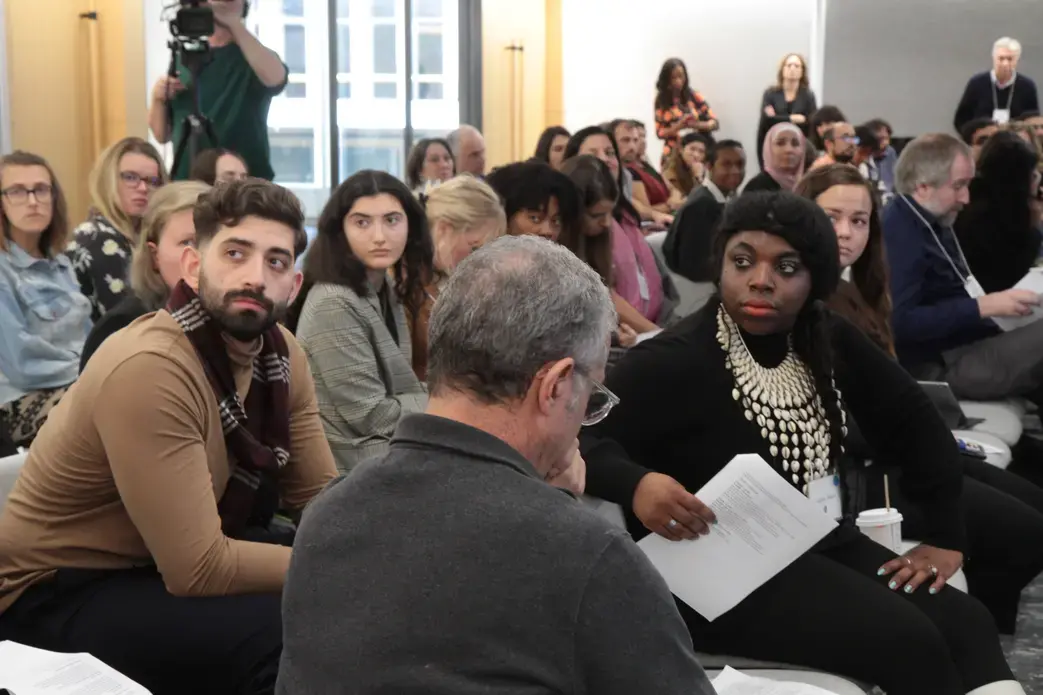
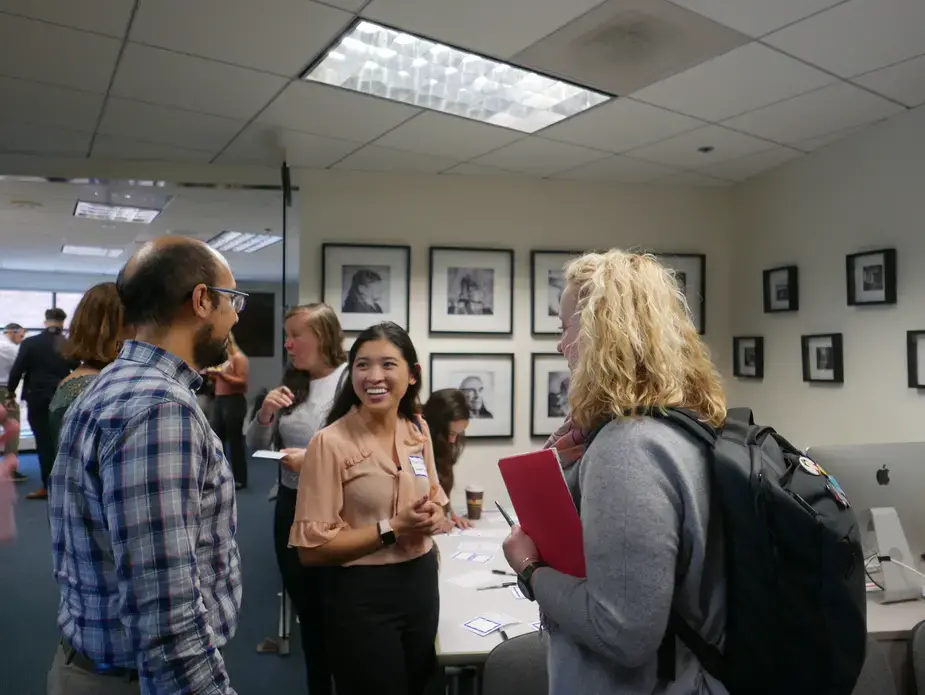
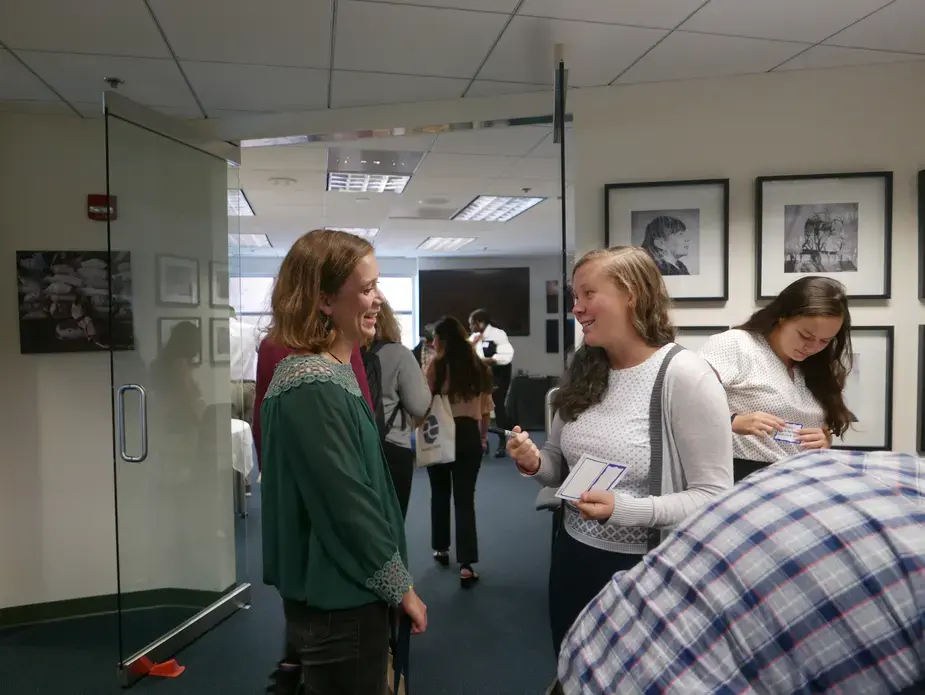



Earlier in the day, Fellows shared stories from their field reporting. The first session of the day covered issues around migration and displacement, where M. Saad Ejaz and Juyong Choi, Fellows from Northwestern University in Qatar, spoke about their teamwork documenting the plight of Yemeni refugees in South Korea.
"Our story isn't really about the politics around the war, or the politics in South Korea," said Ejaz. "Our story is about the people who are being affected by it. What we tried to do with this story is understand why they were forced to leave Yemen, what they did before they came to [South Korea], what their lives were like, and what they're like now."
During the session on women’s health, Keishi Foecke, Reporting Fellow from Washington University, spoke about her project on the #MeToo movement in Uganda—including the hurdles Ugandan women who experience sexual violence face in the conservative country. Victims are rarely believed and usually keep their stories secret due to social stigma in the patriarchal society. “This is my first ever experience with journalism, and I’m thankful to the Pulitzer Center for the opportunity,” said Foecke.

During the second day of presentations which took place at National Geographic, Holly Piepenburg moderated a panel discussion on cultural sensitivity. Philip Martin, a Pulitzer Center grantee, senior investigative reporter at WGHB News and contributing reporter for PRI’s The World, spoke about recognizing the dignity of every person you encounter while reporting.
“Don’t create a stick figure, no one is one dimensional,” Martin told the audience, “The first word that comes to mind is dignity, and you have to let that manifest itself in your story.” Martin’s message was echoed by Jacqueline Charles, Pulitzer Center grantee and Miami Herald correspondent, who spoke on the topic of source protection: “just because they have given you access does not mean you don’t have to protect their dignity.”
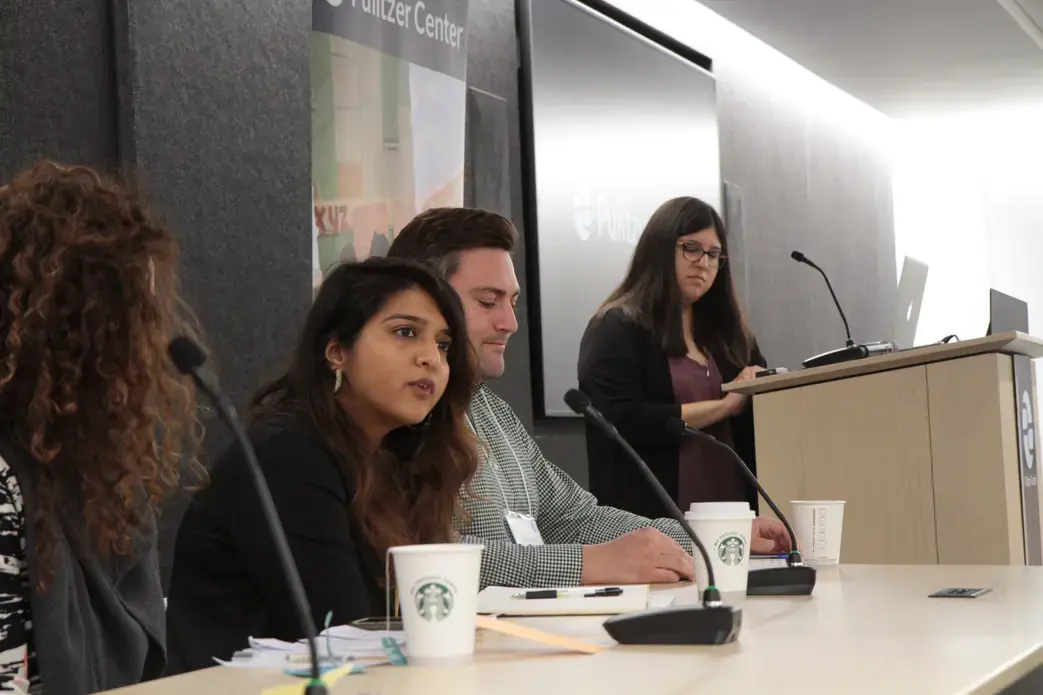
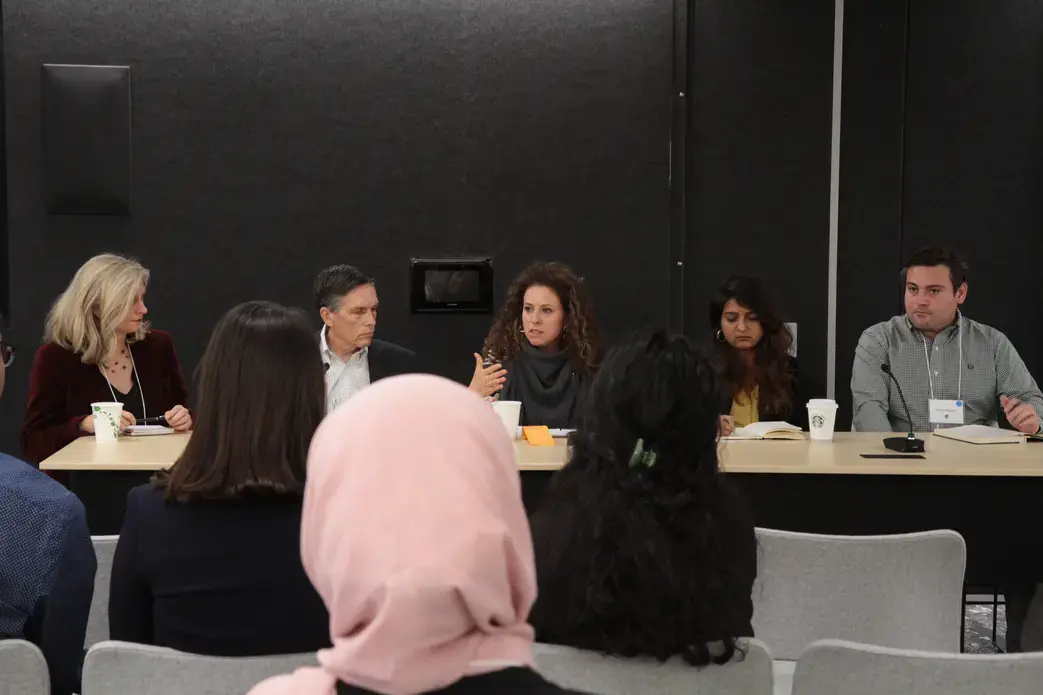
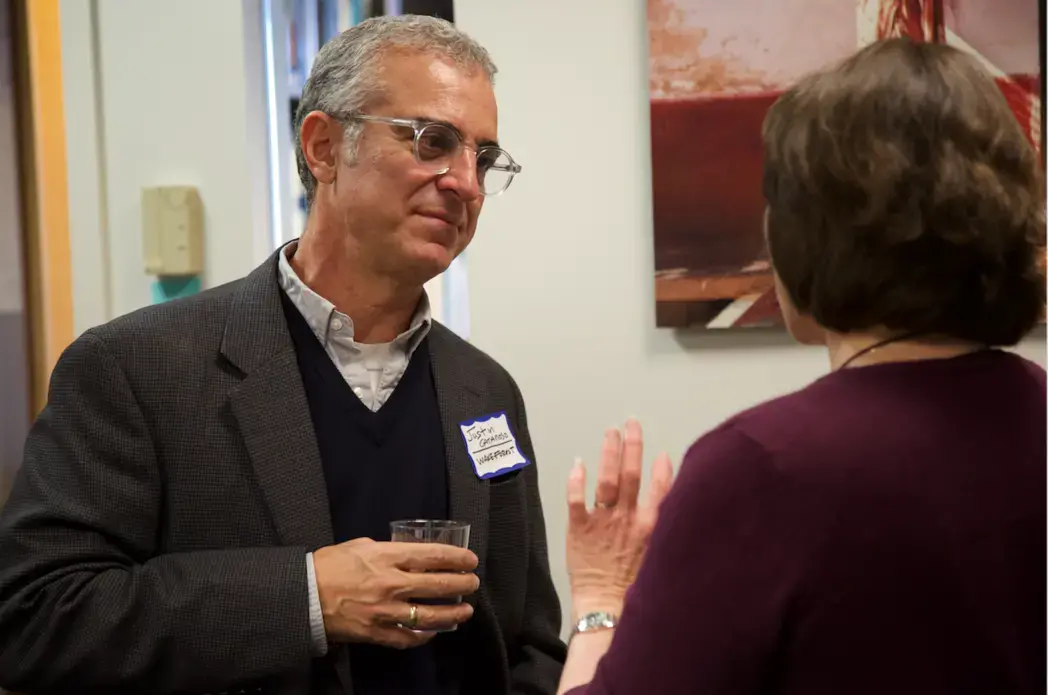



The next panel focused on pitching and was moderated by editorial assistant Jackie Calderon. Panelists included Sarah Wildman, a Pulitzer Center grantee and editor at Foreign Policy, Willie Shubert, Global Director at Mongabay, Dayna Myers, editor at Global Health Now, Shweta Gulati, a mobile storytelling producer and editor at National Geographic, and Peter Copeland who wrote “Finding the News: Adventures of a Young Reporter,” and worked for 30 years as an editor at the Scripps/Howard News Service.
The panelists agreed that knowing what your publication is looking for remains paramount when pitching and building relationships with editors over time is crucial. Gulati advised, “When pitching a story, answer the questions: 'Why us and why now?'”
Myers added: “In your pitch, make sure you tell us the story you want to tell and not just the topic.” Wildman also reminded listeners that as stories evolve, “Sometimes understanding that your pitch is a starting point and not an end point is an important piece.”
Reporting Fellow presentations carried on into the afternoon with sessions on human rights, women’s empowerment, global health, and climate change. Audrey Fromson from the University of Chicago spoke about her reporting trip to the Peruvian Andes where she covered environmental impacts on glacier lakes amidst climate change. Fromson found countless stories, saying: “There’s always more to be told. There’s food stories in here, there’s public health issues.” While there are so many stories to tell, some communities remain plagued by the media telling the same stories over-and-over again.
Cammie Behnke from Elon University reported on how Rwandan women are redefining gender roles by breaking down political and economic barriers through entering new spaces in the workplace. Behnke emphasized she steered clear of telling the Rwandan genocide story because she doesn’t want to contribute to the media echo chamber: “I do believe that a country or an area shouldn’t be defined by that one conflict or that one period of time.”
As sessions led by reporting fellows came to a close, it was clear that the past couple days allowed new relationships to emerge among the Reporting Fellows and between early-career and seasoned journalists. The weekend full of networking and storytelling ended as Kem Sawyer spoke for all the Pulitzer Center team when she said to the Fellows, "You outdid yourself, and we feel very proud.”
Click the links below to view blogs and videos from Washington Weekend:
Presentation On Early Career Opportunities at National Geographic













